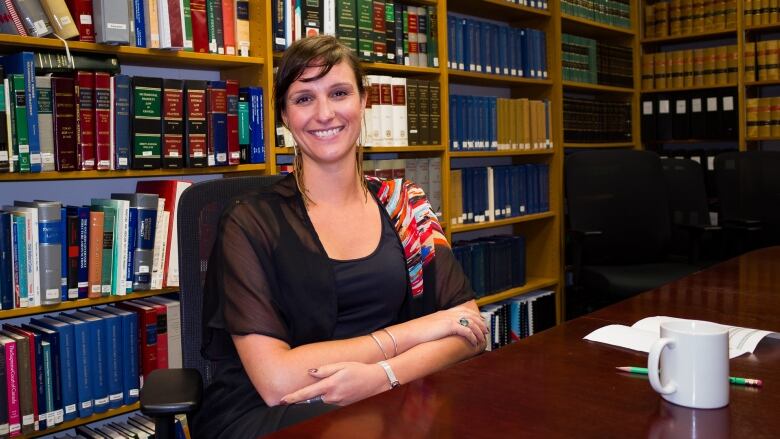Pathfinders help Yellowknife's needy find help in sea of government services
Yellowknife RCMP participate in program and report initial success with difficult cases

Navigating the bureaucracy of government social services in Yellowknife is getting much easier for some of those most desperately in need of aid.
A program that has been operating for nearlytwo yearsis rooted in the the idea that, for some, getting a foot up does not require more or better agenciesbut finding their way to the services that already exist.
The integrated case management pilot project, a Department of Justice initiative, usespathfinders or case managers who work directly with program participants to guide them through the system.
"It's essentially a holistic, person-centred case management program that assists individuals with complex needs," saidKatie-Sue Derejko,the manager and program lead.
"An individual with complex needs may have a lot of different things happening at one time and navigating the services available in the city can be overwhelming. We assist those people in moving forward."
Between the three case managers in the program, there are 81 participants at the moment. Some 215 have been referred to the program since October2015.
Yellowknife RCMPand other emergency service providers have taken notice and recently collaborated with Derejko's program.
"It started from discussions on concerns in the downtown core," Derejko said."RCMP had identified ... a number of individuals ... as being heavy users of emergency services and thought these individuals weren't accessing other services."

According to a July 2017 policing report, RCMP and the City of Yellowknife Fire Division worked together to identify the top 15 users of emergency services in the city. They then approached some of those people to see if they would accept a referral to the program.
Five entered the programandwere among the top eight users of emergency services in the city. By the time the report was written and presented to council, police say there was a 25 per cent drop in calls for service related to those in the program.
RCMP referred request for comment on the apparent success of the program to the Department of Justice, but a police report in September is expected to have more comprehensive statistics.
"We're all serving the same population"
The program is by referral onlybut the range of agencies and departments involved means the program casts a wide net.
Besides the Department of Justice, the Departments of Education, Culture and Employment, the Department of Housing, the Department of Health and Social Services and the Health Authority are all involved.
"Any GNWT employee for any of these departments can refer someone into our program including Stanton [hospital] and the YK Housing Authority," Derejkosaid. "It's quite a large pool of individuals that could refer people through into our program."
Street level NGOs, like the Yellowknife Women's Society which manages the Street Outreach Program, can't directly refer individuals to the programbut Derejko said the program works "very closely with the NGOs for service provision as well as for leveraging resources."
The program's philosophy is based on the idea that government departments responsible for social well-being need to work together to help people with complicated life situations.
"We're all serving the same population," Derejko said. "We all want the same outcomes for this population."
The major goal of the program is to "streamline services so that they're more accessible to individuals that require them and they get them more efficiently, and that they get the right services at the right time," Derejko said.
"When people are supported and they feel like the services that are out there are working for them, the get self-sufficiency and they have more capabilities to make choices in their life. They feel powered and they feel hopeful that they have some control over their life choices."
The program recently had its funding renewed for three more years, meaning it can run until 2020, at least.
Priorities over the next three years include engaging with the government Department of Executive and Indigenous Affairs, a department not currently involved with the pilot project.












_(720p).jpg)


 OFFICIAL HD MUSIC VIDEO.jpg)
.jpg)



























































































